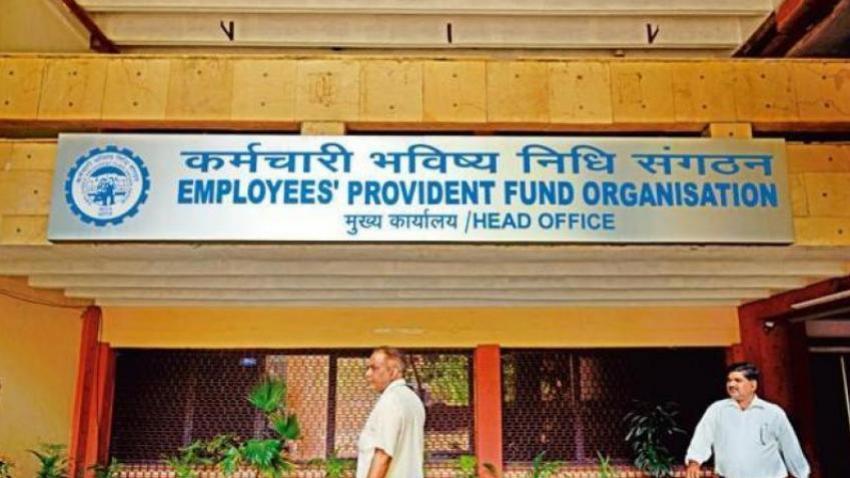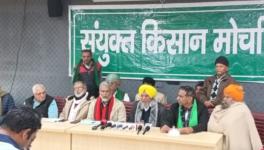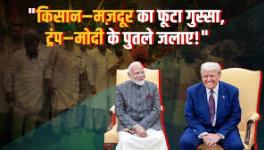Pensioners, Trade Unions Demand Unified Scheme After EPFO Circular

Employees’ Provident Fund Organisation. Image Courtesy: PTI
Kolkata: Trade unions, activists and pensioners have demanded more clarity about parameters for a higher pension following the detailed circular issued by the Employees Provident Fund Organisation (EPFO) on December 29, 2022. They want a second circular seeking more clarity regarding the exercise of options.
The circular was issued after the Supreme Court’s (SC) November 4 judgement upholding the Employees’ Pension (Amendment) Scheme, (EPS) 2014, and giving another chance to EPFO members who have availed of the EPS to opt for higher annuity over the next four months.
The judgment dealt with the question of entitlement of members of the pension scheme whose monthly pension exceeded Rs 6,500 to exercise the option in terms of proviso to paragraph 11 (3) of the Scheme.
Mentioning the “uncertainty as regards validity of the post amendment Scheme”, the court said: “All employees who did not exercise the option but were entitled to do so but could not due to the interpretation on cut-off date by the authorities, ought to be given a further chance to exercise their option”.
The time to exercise option under paragraph 11(4) of the Scheme, under these circumstances, shall stand extended by a further period of four months, the court further said adding: “We are giving this direction in exercise of our jurisdiction under Article 142 of the Constitution.”
The amendment, which took effect from September 1, 2014, was brought about by a notification dated August 22, 2014. Employees who retired before September 1, 2014, and exercised option under para 11 (3) of the 1995 Scheme shall be covered by the provisions of para 11 (3) of the Scheme as it stood before the 2014 amendment.
The maximum pensionable salary then was Rs 6,500. But if employer and employee opted to contribute in excess of Rs 6,500 since the scheme commenced or from the date salary exceeded Rs 6,500, whichever is later, and 8.33% share of employers thereof was remitted into the pension fund, pensionable salary shall be based on a such higher salary.
After the modification, the maximum pensionable salary was limited to Rs 15,000. Employees who had retired before September 1, 2014, without exercising the option under para 11 (3) of the pre-amendment Scheme and had exited from the membership thereof would not be entitled to the benefit of this judgement.
The requirement for members to contribute 1.16% of salary to the extent it exceeds Rs 15,000 as an additional contribution under the amended Scheme is held to be ultra vires of the provisions of the 1952 Act, the court ruled.
However, the SC has suspended operation of this part of the order for six months to enable the authorities to make adjustments in the Scheme so that additional contribution can be generated from some other legitimate source within the scope of the Act, which could include enhancing the rate of contribution of employers.
“We are not speculating on what steps the authorities will take as it would be for the legislature or the framers of the Scheme to make necessary amendment. For six months or till such time any amendment is made, whichever is earlier, the employees’ contribution shall be as stopgap measure and the sum will be adjustable on the basis of alteration to the scheme that may be made. “
The court “didn’t find any flaw in altering the basis for computation of pensionable salary” and thus struck down the requirement in the 2014 amendment mandating employee contribution of 1.16% of salary exceeding Rs 15,000.
A December 31 report in The Hindu mentioned Dada Tukaram Zode, the national legal adviser of the Employees’ Pension (1995) Coordination Committee, contending that nowhere did the apex court verdict state that the option should have been exercised while in service. The outfit is affiliated with New Delhi-based Bharat Pensioners Samaj.
The newspaper’s January 1 report quotes pensioners’ rights activist Parveen Kohli as saying that the December 29 circular is “just to confuse everyone” and an attempt to escape the contempt of court. EPFO is supposed to comply with para 44 (IX) of the judgement within eight weeks from November 4.
“The EPFO is supposed to comply the paragraph 44 (ix) of the judgment within eight weeks from November 4. It is a fact that the RC Gupta judgment has already been implemented through the circular dated March 23, 2017, and the pensions of 24,672 employees who retired before September 1, 2014 has also been revised. This fact had been suppressed by the EPFO from the Supreme Court,” Kohli said.
Meanwhile, in a representation to Union labour minister Bhupendra Yadav, Ashok Ghosh, the president of the United Trades Union Congress (UTUC)—the labour arm of the Revolutionary Socialist Party—has pleaded for a minimum pension of Rs 5,000. He has pointed out that nearly 30 lakh workers receive monthly pension of less than Rs 1,000 from EPFO even when the cost of living is extraordinarily high.
Besides, PF wage ceilings are quite low—even lower than minimum wages in a number of states, Ghosh said. The ceilings need to be enhanced to bring more persons under pension coverage, he added.
Regarding PF, he has contended that the ceiling for PF membership is Rs 15,000 per month. As thousands of workers receive wages more than Rs 15,000, they do not come within the purview of PF. If the ceiling is raised to Rs 45,000, several crores of wage earners would become come under the social security net.
The UTUC president further suggested amalgamation of different pension schemes of the Union and state governments. Such a move will facilitate extension of pension benefit to around 50 crore workers in both the organised and unorganised sectors, he said. The toiling masses contribute immensely to the growth of the economy and it is only natural that they are assured of a secure life in their post-retirement years. Thus, there is a case for the Centre and the states to act in unison to that end, Ghosh argued.
The writer is a Kolkata-based senior freelance journalist. Views are personal.
Get the latest reports & analysis with people's perspective on Protests, movements & deep analytical videos, discussions of the current affairs in your Telegram app. Subscribe to NewsClick's Telegram channel & get Real-Time updates on stories, as they get published on our website.
























